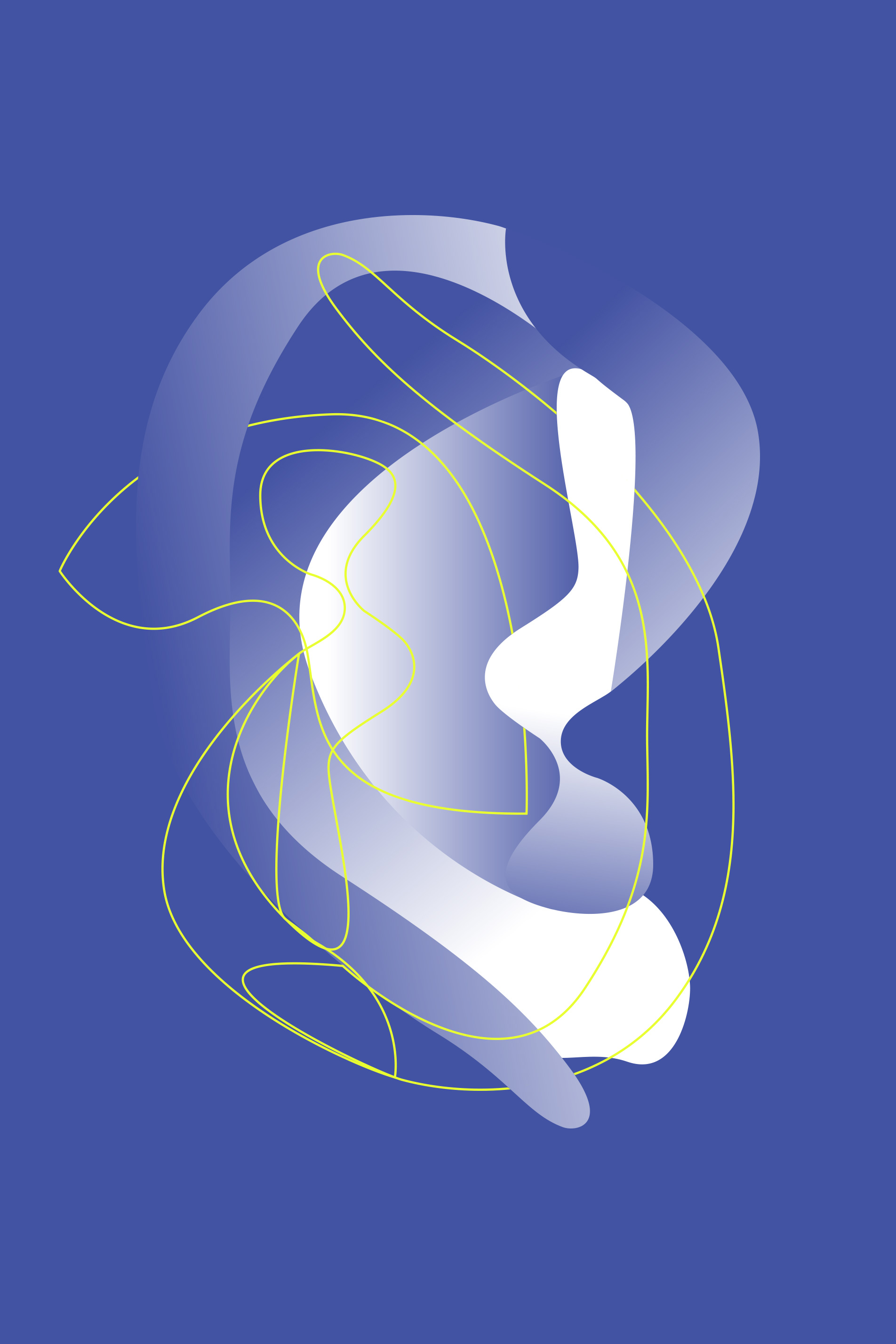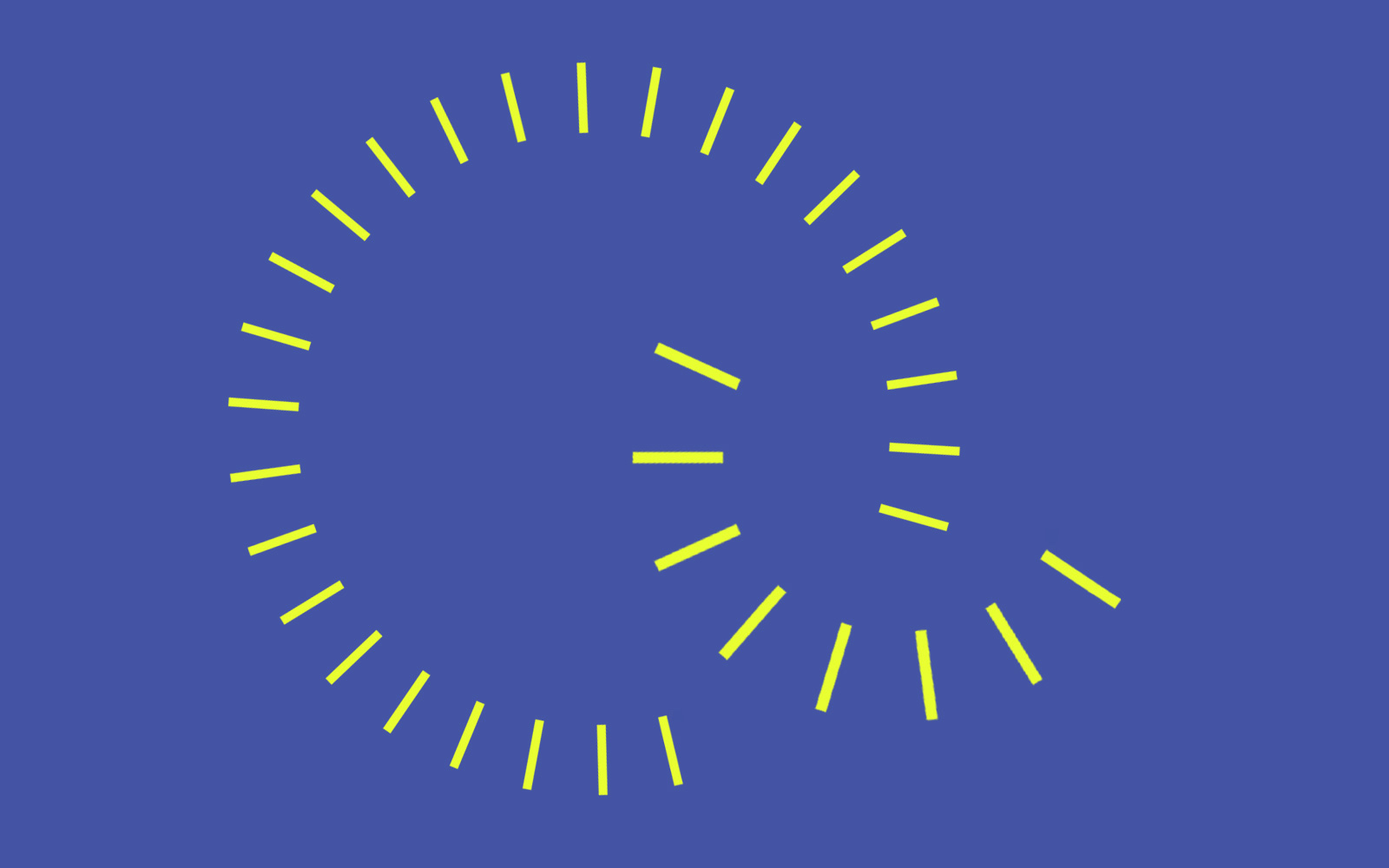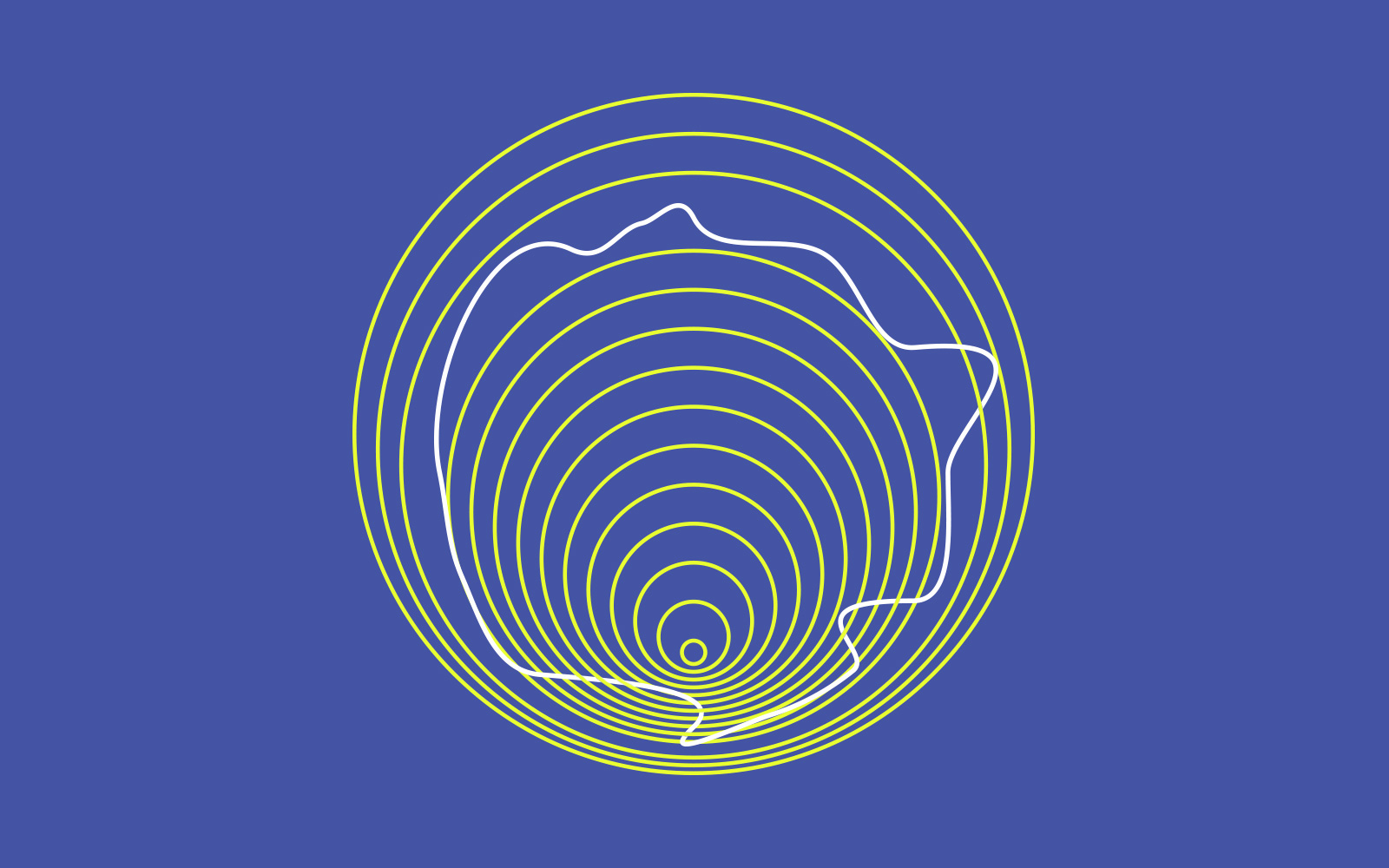
This article originally appeared on residentadvisor.net.
*****
Tinnitus is a bigger issue in dance music than we'd like to admit. Angus Finlayson lays out some clear ways to prevent it, and to cope with it.
She'd been booked to play on the Sunday of Bloc festival in 2016, and arrived on Friday night to enjoy the festival. She'd picked up some disposable earplugs at the bar, but at some point noticed that the one in her right ear had fallen out. "I woke up the next morning and had a searing pain, like white-hot painful, and mad tinnitus in my right ear," she says. "I couldn't believe it; it was just incredible pain. That whole night I couldn't even go near the venue, and then I had my show the next day. I knew it was the worst thing for it but I was there to play, so I played."
Back in London, the tinnitus persisted for three months. "I sort of stopped everything. I stopped going out to gigs." She had friends cover her regular slot on NTS, and began to wear professionally moulded earplugs "around town, all day—I didn't want any sort of sound exposure making it worse. The tinnitus made me really, really anxious. I could hear it all the time but especially first thing in the morning and last thing at night, when it's really quiet. I hated myself, to be honest. I couldn't believe I'd done that to myself."
After a couple of months Ghose saw a general practitioner, and then a specialist, who gave her a hearing test—which showed no hearing loss—and told her the tinnitus would probably get better. It did, slowly, but has returned with a vengeance in recent months.
Ghose's DJ career as DEBONAIR is just picking up. She quit her other job about six months ago, and when we spoke she was buzzing after a Boiler Room session with Chapter 10. She's still managing to do gigs—several a month—but the tinnitus means she's avoiding other commitments, scaling back her radio show and putting podcast offers on hold.
"It does feel like I'm holding back by not taking advantage of these opportunities right now," she says. "But I'm trying to give my ears the best possible chance to recover, so I can make the most of these opportunities with a bit more time."
Sadly, Ghose's story isn't unusual. Many people who have spent an evening around loud music will have experienced a ringing in their ears for a few hours afterwards. But for some of us, at some point, the sound sticks around. Perhaps for a few days, weeks or months, or perhaps forever.

According to Action On Hearing Loss, 10% of adults in the UK suffer from tinnitus. In the US, the Hearing Health Foundation puts the figure at almost 15%. The numbers are probably higher among people who spend their lives around music, as they're more likely to expose themselves to damaging sound levels. I did an informal survey of the music-lovers I had to hand: my colleagues at RA. Almost 20% of them report suffering from tinnitus—an especially high figure considering the company's average age is around 30. (Tinnitus sufferers tend to be older).
Tinnitus can affect your life in profound ways. Besides impairing your ability to hear and enjoy sound, the ringing can cause anxiety and sleeplessness. Most find a way to live with the condition, but at its worst it can be life-destroying. After Inspiral Carpets drummer Craig Gill took his own life last year, his wife blamed his tinnitus, which had become "so unbearable he felt there was no cure."
Tinnitus is also a notoriously knotty condition. Its precise symptoms and triggers vary from person to person, and there's little public awareness of what exactly it is and how it functions. A Google search can yield conflicting information, fishy-looking studies supporting half-proven therapies, and scary forum threads full of desperate sufferers. Musicians, meanwhile, often have the defeatist attitude that hearing problems simply come with the territory.
"What really bothers me is the inevitability aspect that I think a lot of musicians have, where they're like, 'Oh yeah, everyone has tinnitus,'" says Ghose. "I really, really don't want to have it, and I would really like to think that it's avoidable."
The good news is that it is avoidable, even for people who love loud music. And if, like Ghose, you already have the condition, there are things you can do to minimise its effects on your life. There is no known cure for tinnitus, but numerous techniques and therapies can keep it in check. It needn't stop you doing the things you love.
So what exactly is tinnitus? Simply put, it's the perception of sound in the absence of a physical sound source. The exact sound perceived can vary. Some of my RA colleagues report a high-pitched ringing "similar to the background noise of an appliance left on." Others hear a lower, mid-frequency tone—my own tinnitus falls into this category—a "low buzz," or a sound "like wind blowing." The sound can be in one or both ears. It might be constant, or it might come and go.
A variety of things can cause tinnitus, among them head injuries, high blood pressure and some drugs, including a selection of antibiotics. In many cases, the exact cause is never established. But if you've spent a lot of time listening to loud music, and especially if your tinnitus came on after a night out or a listening session, then this is very likely to have been a factor. Any sound louder than 85 decibels can, over time, harm your ears. The louder the sound, the quicker damage sets in. In DJ booths with decibel meters, it's not unusual for them to turn warning-red at 100 dB. At that volume, sound may begin to cause permanent harm after 15 minutes.

Loud sound overwhelms the ear's delicate mechanisms, and can damage the tiny hair cells in the inner ear that pick up sound waves, or the nerves that relay information from those hair cells to the brain. The brain, so the theory goes, then over-compensates for the missing input, in the same way that amputees experience phantom sensations from a lost limb. Tinnitus has been called "phantom auditory perception."
So, while it might seem like a problem with your ear—and it usually begins there—tinnitus actually resides in the brain, whose complex systems are not yet well understood. Various therapies can help reduce its effects (more on that later). But many sufferers simply learn to deal with the condition on their own terms.
"The older I get and the more I get used to it, the less it bothers me," says Matthew Barnes, AKA Forest Swords, of his tinnitus. "But also I'm aware that I can't let it bother me, because I'll never get rid of it. It's just something that I have to accept, really."
Barnes has had tinnitus since his early 20s, after attending one too many gigs without ear protection. These days it affects him at "various levels. If I'm having a normal day, then I don't really notice it, but if I've been drinking, or if I haven't slept, or if I'm stressed—which is quite often, on tour—then it really gets worse."
Barnes was a student when his tinnitus started, but he's since made a career as Forest Swords. When we spoke, he was in the process of mixing his latest album, Compassion, recently released on Ninja Tune. "I've generally found a point where my ears are getting tired," he says. "I know to stop then. I'll mix something one day, come back to it another day and it will sound completely different to how I thought. So I'm having to get second and third opinions on stuff."
This makes him a slower worker than he otherwise might be. "It definitely affects my work rate. I think I could make music a lot faster if I didn't have this. But on the plus side, I care a lot more about what I put out. It's stuff that I really work a long time on. So it can work in a positive way. Or at least I try to spin it in a positive way, I think."
In the live arena, too, Barnes is conscious of limitations—not only to his own hearing, but to how much audiences can take. "I think if you're an artist that is specifically working with loud volumes as a tool, then you have a responsibility to work with promoters to ensure that punters can experience it in safe ways." But while his tinnitus, like Ghose's, was ultimately triggered by loud music, there's no question of giving it up altogether. "I like hearing my music at loud volumes, as everyone does. I like the immersive qualities of loud volumes."
This complicates discussions about hearing preservation in the music world. Hearing is our cherished faculty, and we want to protect it. But we also love exposing ourselves to potentially dangerous volumes. Extremely loud sound can, after all, produce specific and very intense sensations in the body. It's central to the experience of many forms of popular music.
"We can't talk about music and loud sound as if it's a bad thing, period," says audiologist Frank Wartinger. "That's like talking about alcohol like it's a bad thing, or driving a fast car like it's a bad thing." Wartinger runs Earmark Hearing Conservation, a private practice in Philadelphia working with musicians, and has his own history with music and tinnitus. As a kid, his dream was to be a musician. Teenage band practices left him with a ringing in his ears. He got a degree in studio work, but retrained after he felt that clients were noticing "shortcomings with my ears, because I would miss certain things."
Not all medical professionals recognise the unique quandary faced by a musician with hearing problems—Ghose's doctor initially advised her to "give up DJing." But Wartinger understands that, for somebody whose life revolves around music, giving up isn't an option. "Although your hearing is precious, and you don't want to lose it, still, music is going to win out. There are so many musicians out there who have hearing impairment, and they find ways of doing what they love."
I asked Wartinger to suggest practical steps that musicians and music-lovers can take against tinnitus. It all starts before the ringing arrives, with prevention—something he likens to dental care, in which awareness, good practice and regular checkups can preserve long-term health. (Wartinger laid out some of these tips in a recent paperdirected at musicians, though they're relevant to anyone who spends a lot of time around music.)
This isn't just about best practice in a noisy club environment. It's likely that most of your listening happens in daily life. Perhaps you work in the studio with the monitors cranked up, DJ in your bedroom at loud volumes, or spend hours listening on headphones. (Most headphones can produce sounds well over the 85 dB threshold.) It's worth examining these habits, and making efforts to prevent the volume from climbing as your ears get tired. I'd recommend setting a comfortable listening volume when your ears are fresh—first thing in the morning, say—and trying not to exceed it as the day wears on. Regular breaks can also give your ears a chance to rest.
During performance, meanwhile, Wartinger encourages DJs to pay attention to monitoring. Experiment with how low you can set the booth volume without losing connection with the music, and consider turning the monitors off completely between mixes to give your ears a break. In-ear monitoring allows more precise control over the sound levels you experience; many DJs find this method impractical, but some big league artists, such as Laidback Luke, swear by it.
Your newfound awareness can also be used to the benefit of punters. "Oftentimes you can have control over the house volume," says Wartinger. "Try to make some adjustments there. Sometimes it doesn't mean quieter—sometimes it means having a more dynamic set, having loud moments and quiet moments, and also maybe pushing the bass more than pushing the 2-4khz range, where you're causing the most damage. Little tweaks can make what you're doing safer."

Earplugs are another crucial tool. These vary widely in cost and effectiveness. The foam nubs available for free at many clubs are a blunt instrument: they'll protect your hearing, but aggressively muffle the music, too. Then there are the one-size-fits-all plugs that offer more nuanced sound filtering at relatively low prices. Finally, custom-moulded "musicians'" earplugs offer high sonic precision suitable for professional use. The price tag—£150-200 is about standard—might seem excessive, but it's no more than a single festival trip, and custom plugs tend to last for three years before the mould needs to be recast. (Professional musicians living in the UK can apply for the Musicians' Hearing Health Scheme, which offers a hearing consultation and a set of musicians' ear plugs for £40.)
Still, there is resistance to earplugs in the music world. As one RA employee puts it, dance music is "not made to be played to people wearing earplugs. When you put them in it's never going to sound the same. And one of the amazing things about being in a club is that physical feeling the music has on you. With earplugs you just don't get that."
Many DJs hold a similar view. Ghose had moulded earplugs when her tinnitus struck, but didn't often wear them; she now tends to keep one in her affected ear, but isn't comfortable wearing both for a whole set. "I need to feel what my set is doing and where I should take it. When I'm wearing moulded earplugs I feel really disconnected from the crowd and the vibe in the room."
Wartinger notes that it's important to practice DJing with the plugs in, to acclimatise to lower volumes. Even for punters, the gentler sound level will probably feel strange for a while. But the feeling should pass. Much of sound's "physicality" comes through lower frequencies, which are picked up through the bones as much as the ears, and are thus not blocked out by earplugs. You may even find that you enjoy loud music more, since you won't suffer from "temporary threshold shift"—short-term deafness in response to excessive noise levels—which can make things sound distorted and unclear. I've worn moulded earplugs in clubs for almost a decade, and I wouldn't go out, or DJ, without them.
"I've noticed a lot of the times when I'm watching a show and the PA is kind of shitty, I put earplugs in and you can actually hear stuff a lot clearer," says Barnes. "It pulls out different things that maybe you wouldn't hear if you weren't wearing earplugs."
So that's prevention. But what if, like Ghose, you've already got tinnitus, and you're wondering what it means for your love affair with music?
"It's a common story that I hear," says Wartinger. "'I'm right there, I'm about to get that record deal, I'm about to go on tour, and now my ears are acting up.' My first advice is: don't cancel anything. Don't cancel your dates, because that's going to be emotionally draining and rough on you in a psychological way, and that's not going to help you deal with the trauma [of tinnitus]. So definitely don't stop."
His second suggestion is to seek professional advice—if possible, from a hearing specialist who routinely works with musicians. "I hear from people all the time who are extremely devoted to musicians' care, so they exist out there. Find somebody that you can speak to who can walk you through your specific situation." There are also charities offering advice and support, like the American and British Tinnitus Associations.
A specialist should give you a hearing test—the results will likely be better than you think, since there's no simple one-to-one relationship between tinnitus and hearing loss—and then recommend ways to help manage the condition.
As well as discussing preventative measures, like earplugs, they will try to identify what triggers or worsens your tinnitus. Wartinger's list of common triggers sounds a lot like Barnes' tour bugbears: excesses of caffeine and alcohol (particularly red wine), stress, sleep deprivation. Precise triggers can vary between sufferers. Once you've got a sense of your own, you'll be better placed to handle the condition in daily life.
"So if you go out for a really nice dinner and there's a band playing, and you come home and your ears are buzzing, you don't have to say, 'Oh no, I've damaged my ears because that band was in the background playing quietly!'" says Wartinger. "It might have been those seven glasses of wine that you had, and they're just making your ears buzz tonight. Recognising that usually reduces the stress level that people have."
Identifying triggers, however, shouldn't mean being over-cautious with sound. "People who end up wearing earplugs wherever they go, closing all their windows, avoiding all music because of their tinnitus: all these things are addressing the problem with sound. But the tinnitus isn't in your ear anymore. It has no footing in your ear. It's a sound that we hear coming from our brain. And it's probably a deep part of the brain that's making this sound, and that's reacting to it in a very emotional way. That's where we need to start working on it. Not in the outside environment."
Exposure to everyday sounds—conversation or low volume music—is unlikely to make the problem worse. Shielding yourself from these sounds may in fact lead to an abnormal sensitivity to sound, called hyperacusis. "When you overprotect your ears, your brain is associating a quieter world with reality," Wartinger explains. "And then when you hear louder things, for instance when you take the earplugs out, they're immediately seen as a threat, when they weren't before and shouldn't be." If you get into this situation, a specialist can help guide you out of it.

The next step is to explore treatments that might help reduce the condition's negative effects. Because of the neurological basis of tinnitus, there is a lot of trial and error involved in this process. Some therapies work for some people, but there are no hard and fast rules, and the waters are muddied by dubious cures. Contrary to what you may read, the plant extract ginkgo biloba has not been proven effective against tinnitus. No drugs or dietary supplements have been shown to do more for the condition than a placebo.
A variety of treatments focus on the ear. At the most basic level, tinnitus can be "masked" by distracting the brain with background sounds, like white noise. In the more sophisticated "notch therapy," the sufferer listens to sound or music with the frequency of their ringing "notched" out—the idea being that this helps reprogram the brain's neural response to that frequency. Notch therapy has been around for a while and, as with many tinnitus therapies, its efficacy is disputed. Various online resources can help you explore it for free, but it has also been repackaged and marketed as a (paid-for) app by the likes of Tinnitracks. It's worth treating their miracle-cure claims with scepticism.
Wartinger estimates that around "two thirds to three quarters" of sufferers notice some improvement from these sound therapies. "Which then says to me that a third of people get no benefit from it—it's not a direct one-to-one. Again, we can't treat the ear and expect the brain to react. We have to imagine that what we're putting in through sound therapy is affecting the brain on some level, but it's mostly about our own ability to put ourselves into this treatment mode, or this reducing of symptoms, internally, intrinsically."
For those whose tinnitus comes with significant hearing loss, Wartinger suggests a more concrete solution: a hearing aid. "It sounds a little silly, but it's because you're giving people a soundscape back. If you have hearing loss you hear a lot of silence in your world. If we give you hearing aids and you hear air conditioners, and people walking and breathing, and all this other stuff that makes up the soundscape, suddenly you don't focus so much on the tinnitus."
Other therapies switch the focus to the brain. Cognitive behavioural therapy has similar success rates to sound therapy, as does tinnitus retraining therapy, which combines aspects of counselling and sound therapy in an attempt to habituate your brain to tinnitus. Some report that forms of meditation, like mindfulness, make a difference—after all, reducing stress is key to keeping tinnitus under control. Wartinger suggests some simpler strategies.
"What I usually recommend is to give yourself a break, and reduce the overall stressors in your life. Give yourself a pass, allow yourself to just take a nap, go for a couple of days where you don't have to do anything except read a book. Usually what you're going to find is that you're not thinking about the tinnitus as much."
Finally, I ask Wartinger a question he doubtless hears a lot: there may be no cure for tinnitus now, but is there one on the horizon?
"First off, you have tinnitus now, let's help you now," he says. "There's no point waiting around or obsessively researching what's out there in the future. There are very smart people in every major university in the world looking into that problem. Let's let them deal with that, and let's focus on your ears now."
However, progress is being made in related fields. Drugs are being developed that can reduce the ear's susceptibility to harm from loud sound, and stem cells could, in theory, regenerate the tiny hair cells that get damaged. But while these advances might shield future generations from tinnitus, they probably won't help existing sufferers. Remember: the tinnitus might have started in the ear, but it lives in the brain. "I think we are very far away from something that can reach into the inner depths of our brain and reset whatever switch it is that's mis-wired," Wartinger says.
If this sounds depressing, Wartinger often does an exercise with his patients. His point is about acceptance, one of the keys to a happy life with tinnitus.
"Close your eyes, and think about what you're seeing. You don't see black, you see colours and lights and movement. That's partially the light coming in from the outside world, but it's also your brain trying to turn up the gain and see something out of the nothing that you're getting. You're seeing your nerves firing and working. And what we're hearing when we're hearing tinnitus is the same thing. Just your brain and your ear and your nerves working. It's a sign that the engine is functioning. I don't think that we can get rid of that, because it's a natural part of our body."
RA will be teaming up with EarPeace to giveaway earplugs at upcoming RA club events.

kAeZpEOi
hKqYiVmpaQlvPwH
kzVeRSIAB
LrKGTYOS
FZmDylaipPtr